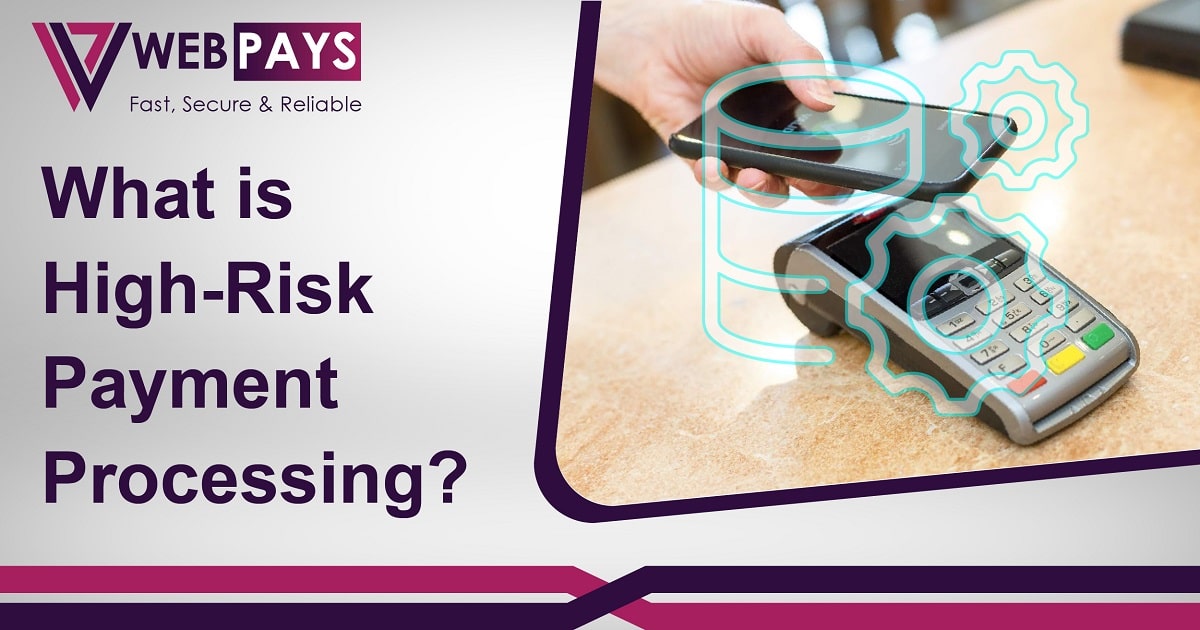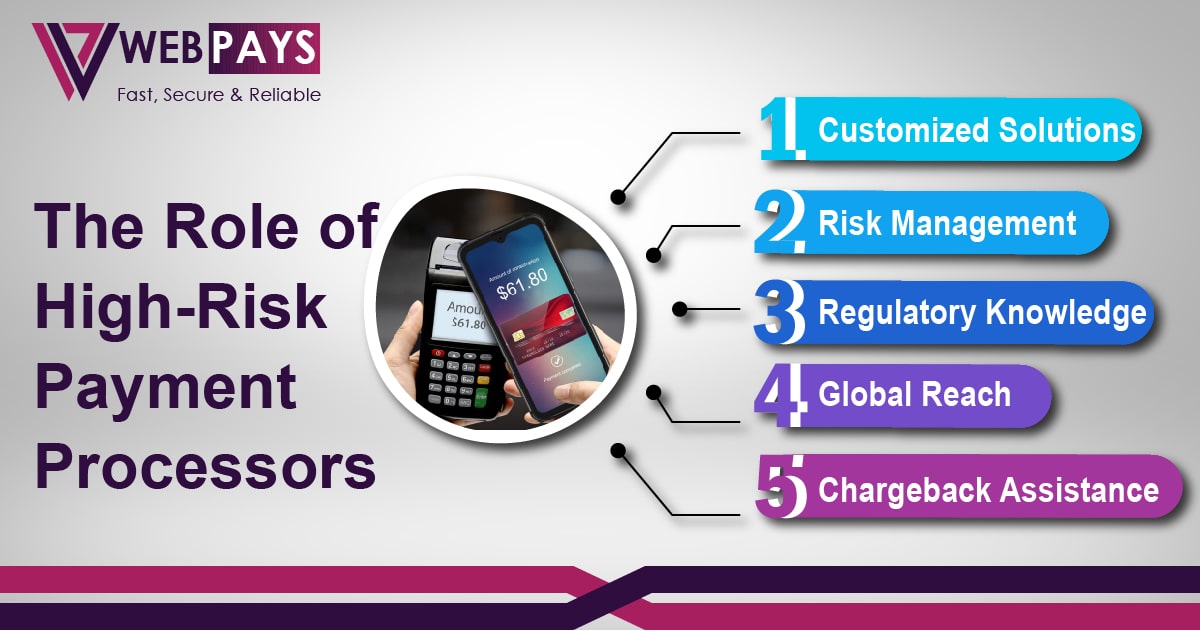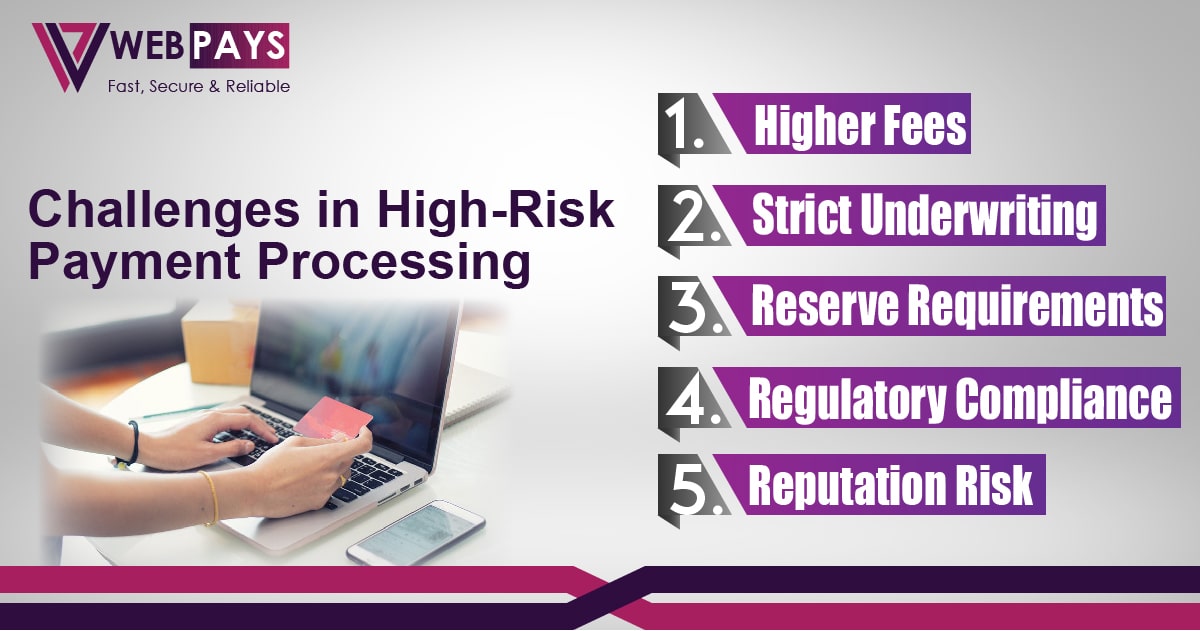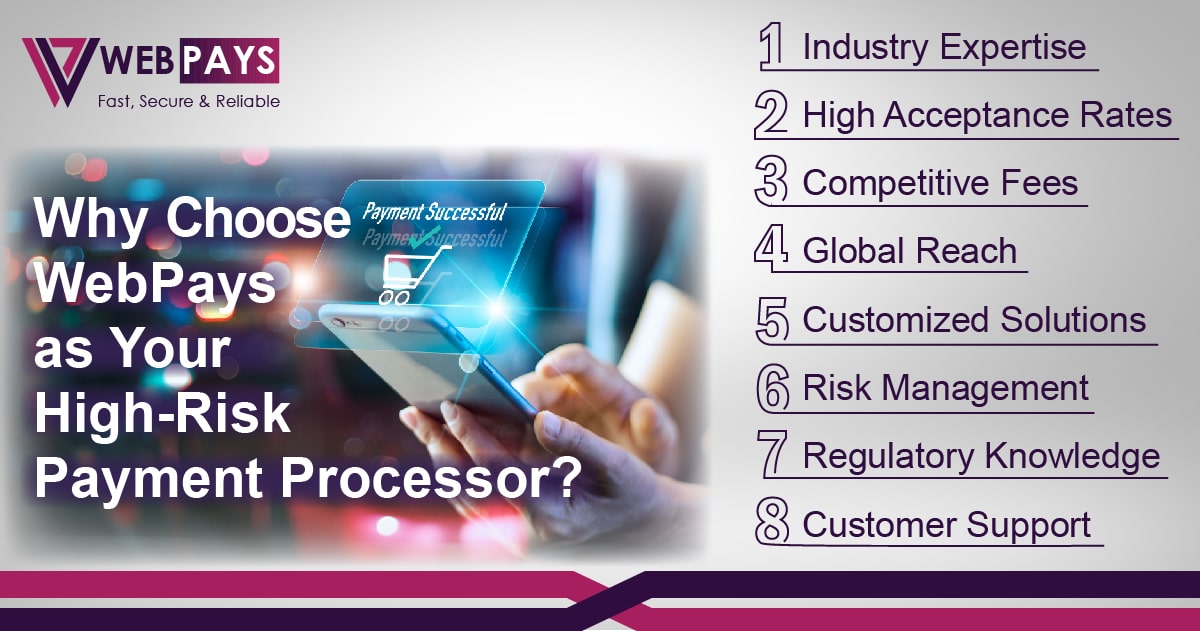High-Risk Payment Processing in Netherlands: What You Need to Know

If you're a merchant in the Netherlands, you might have heard about high-risk payment processing. But what exactly does it mean, and how can it affect your business? In this blog, we'll break down this complex topic in simple terms, providing you with essential information to understand high-risk payment processing in the Netherlands.
What is High-Risk Payment Processing?

High-risk payment processing is a specialized service that allows businesses to accept payments from customers, even if they are considered high-risk by traditional payment processors. But what exactly makes a business high-risk, and why is this service necessary?
Why Are Some Businesses Considered High-Risk?
There are several factors that can label a business as high-risk. Understanding these factors is crucial to grasp the challenges associated with high-risk payment processing in the Netherlands. Here are some common reasons:
- High Chargeback Rates: If your business has a history of excessive chargebacks, it's a red flag for traditional payment processors.
- Industry Type: Certain industries, like online gaming, gambling, adult entertainment, forex trading, tobacco, CBD, vapes, or pharmaceuticals, are often classified as high-risk due to regulatory and legal considerations.
- Financial Instability: New businesses, those with poor credit, or unstable financials may be considered high-risk.
- International Operations: Expanding internationally can sometimes trigger high-risk status due to currency exchange and fraud risks.
- Subscription-Based Models: Businesses with subscription-based models, such as IPTV, dating apps, etc., are often considered high-risk because of the potential for customer disputes.
Understanding why your business might be classified as high-risk is the first step in addressing the challenges associated with high-risk payment processing in the Netherlands.
The Role of High-Risk Payment Processors

So, how can high-risk businesses still process payments? This is where high-risk payment processors come in. These specialized service providers are equipped to handle the unique needs of high-risk merchants. They provide them with high-risk merchant account, payment gateways for high-risk, risk management systems, and all other payment solutions merchants need. Here's how they help:
- Customized Solutions: High-risk payment processors tailor their services to meet the specific needs of your business.
- Risk Management: They have advanced risk management tools to help reduce chargebacks and fraud.
- Regulatory Knowledge: High-risk processors understand the complex regulations and legal aspects of high-risk industries, helping you stay compliant.
- Global Reach: Many high-risk merchant account providers can facilitate international transactions, crucial for businesses with an international customer base.
- Chargeback Assistance: These processors often offer support in dealing with chargebacks, helping you resolve disputes and minimize their impact.
Benefits of High-Risk Payment Processing in the Netherlands
Now that you understand the basics of high-risk payment processing, let's explore the benefits of using these services in the Netherlands:
- Accepting More Payment Methods: High-risk processors often support a wide range of payment methods, including credit cards, e-wallets, and alternative payment options.
- Global Expansion: If your high-risk business wants to go global, these processors offer high-risk online merchant account that can help you accept payments from customers around the world.
- Reduced Chargebacks: High-risk payment processors implement robust fraud prevention measures, reducing chargebacks and their associated costs.
- Industry Expertise: They have in-depth knowledge of high-risk industries, ensuring that your payment processing remains compliant and efficient.
- Tailored Solutions: High-risk payment processors design their services to fit the unique needs of your business, providing flexibility and scalability.
Challenges in High-Risk Payment Processing

While high risk payment processing offers many advantages, it's essential to be aware of the challenges you may encounter:
- Higher Fees: High-risk payment processors often charge higher fees to compensate for the added risk they take on.
- Strict Underwriting: Approval for high-risk merchant accounts can be more challenging, and you might need to provide additional documentation.
- Reserve Requirements: Some processors may require you to maintain a reserve fund to cover potential chargebacks and disputes.
- Regulatory Compliance: High-risk industries are subject to strict regulations, and non-compliance can result in fines or account closures.
- Reputation Risk: High-risk businesses may face reputational risks due to their association with certain industries.
Choosing the Right High-Risk Payment Processor
Selecting the right high-risk payment processor is crucial for your business's success. Here are some factors to consider when making your choice:
- Industry Experience: Look for a processor with experience in your specific industry.
- Compliance Expertise: Ensure they have a deep understanding of the regulatory requirements for your business.
- Global Capabilities: If you plan to expand internationally, find a processor that can offer a global payment gateway along with its high-risk merchant account and support your global ambitions.
- Security Measures: Evaluate their fraud prevention and security measures to protect your business and customers
- Pricing Structure: Understand the fee structure and any additional costs associated with the service.
- Customer Support: Reliable customer support is essential for resolving issues and concerns promptly.
Why Choose WebPays as Your High-Risk Payment Processor?

WebPays stands out as the best high-risk payment processor in the Netherlands for several reasons:
- Industry Expertise: We have extensive experience working with high-risk businesses across various industries. Our in-depth knowledge ensures that your payment processing remains compliant and efficient.
- High Acceptance Rates: WebPays has a high acceptance rate for high-risk merchants. This is because they have a specialized team that understands the unique needs of high-risk businesses.
- Competitive Fees: WebPays charges competitive fees for high-risk payment processing. We understand that high-risk merchants already face higher fees, and we strive to keep their fees as low as possible.
- Global Reach: We can help you expand your business internationally by facilitating payments from customers around the world.
- Customized Solutions: At WebPays, we understand that each high-risk business is unique. We tailor our services to meet your specific needs, providing flexibility and scalability.
- Risk Management: We employ advanced risk management tools to help reduce chargebacks and fraud, protecting your business and your customers.
- Regulatory Knowledge: Staying compliant is crucial for high-risk businesses. Our experts are well-versed in the complex regulations and legal aspects of high-risk industries.
- Customer Support: We offer reliable customer support to assist you in resolving issues and concerns promptly, ensuring a smooth payment processing experience.
Overall, high-risk payment processing in the Netherlands is a vital service for businesses operating in traditionally high-risk industries. While it presents challenges, the benefits make it a valuable solution for many businesses. By selecting WebPays as your high-risk payment processor, you can leverage our industry expertise, global capabilities, customized solutions, robust risk management, regulatory knowledge, and exceptional customer support to ensure the success of your high-risk business. Choose WebPays for a seamless high-risk payment processing experience in the Netherlands and beyond.
How to apply?
Click on Apply Now and complete the form. Our team will contact you for additional requirements. Please have the following documents available so that your application can be processed quickly:
- Complete details of business
- Website or App of your business
- Contact Information, such as email, phone number, and address
- Details of business owner
- Address proof of owner and business
- Documents of business partnership
- Last three months’ business bank statement